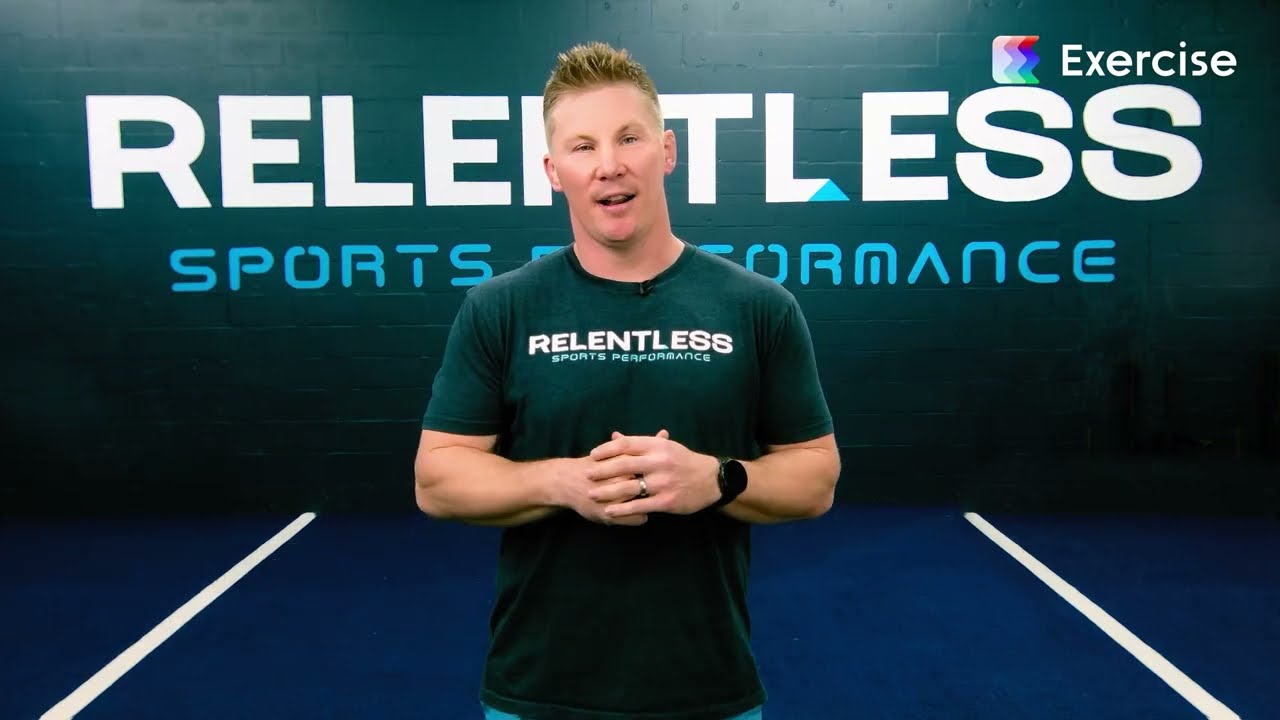How to Open a Gym in NYC in 2025
Learning how to open a gym in New York City (NYC) requires navigating a complex web of regulations, financial planning, and strategic location selection.

NYC, with its diverse population and strong focus on health and wellness, offers a lucrative opportunity for gym owners. However, success in the highly competitive New York City gym market requires understanding the city’s specific legal requirements, obtaining necessary NYC gym licenses, and ensuring compliance with health and safety standards.
| Key Information | Details |
|---|---|
| Estimated Cost to Open a Gym in NYC | $500,000 to $1.5 million depending on size, location, and equipment |
| NYC Gym Licensing Requirements | Business License, Department of Health Permit, Certificate of Occupancy |
| Government Licensing Links | NYC Business Portal, NYC Health Club Starter Guide, NYC Small Business Services, NYC Athletic Training Licensing |
| Monthly Cost of Running a Gym in NYC | $30,000 to $100,000 depending on rent, utilities, staffing, and maintenance |
| Key Regulations to Consider | NYC labor laws, zoning laws, Health and Safety regulations |
For a detailed guide on how to open a gym, refer to this resource. Additionally, understanding the cost to open a gym and selecting the best gym management software are crucial steps in establishing a successful fitness business in NYC.
So if you are looking to open a gym business in New York City, then ensuring you have the right legal documents and operational tools in place is crucial. From a gym contract template to a gym waiver template and a personal trainer contract template, having the proper paperwork can help you streamline your business setup. Get access to all the free fitness templates you need to successfully launch your NYC gym.
Opening a gym in NYC requires navigating multiple regulations, including obtaining the correct NYC gym business license, following NYC gym child care regulations, and meeting NYC fitness center requirements. Whether you’re looking to buy a gym business in NYC, start a fitness franchise in New York, or open a boutique studio, you need an all-in-one software that can handle memberships, payments, scheduling, and compliance. Exercise.com is the best gym management software for New York fitness businesses, helping you automate operations and grow your gym efficiently. Get a demo now and see how our platform can support your NYC gym.
With strict NYC gym laws and regulations, having a platform that simplifies business management is essential. Exercise.com helps gym owners with everything from NYC gym license and permits to automated member check-ins and online training services. Whether you’re opening a fitness studio in NYC or scaling a gym franchise, our platform has everything you need to succeed. Get a demo now.
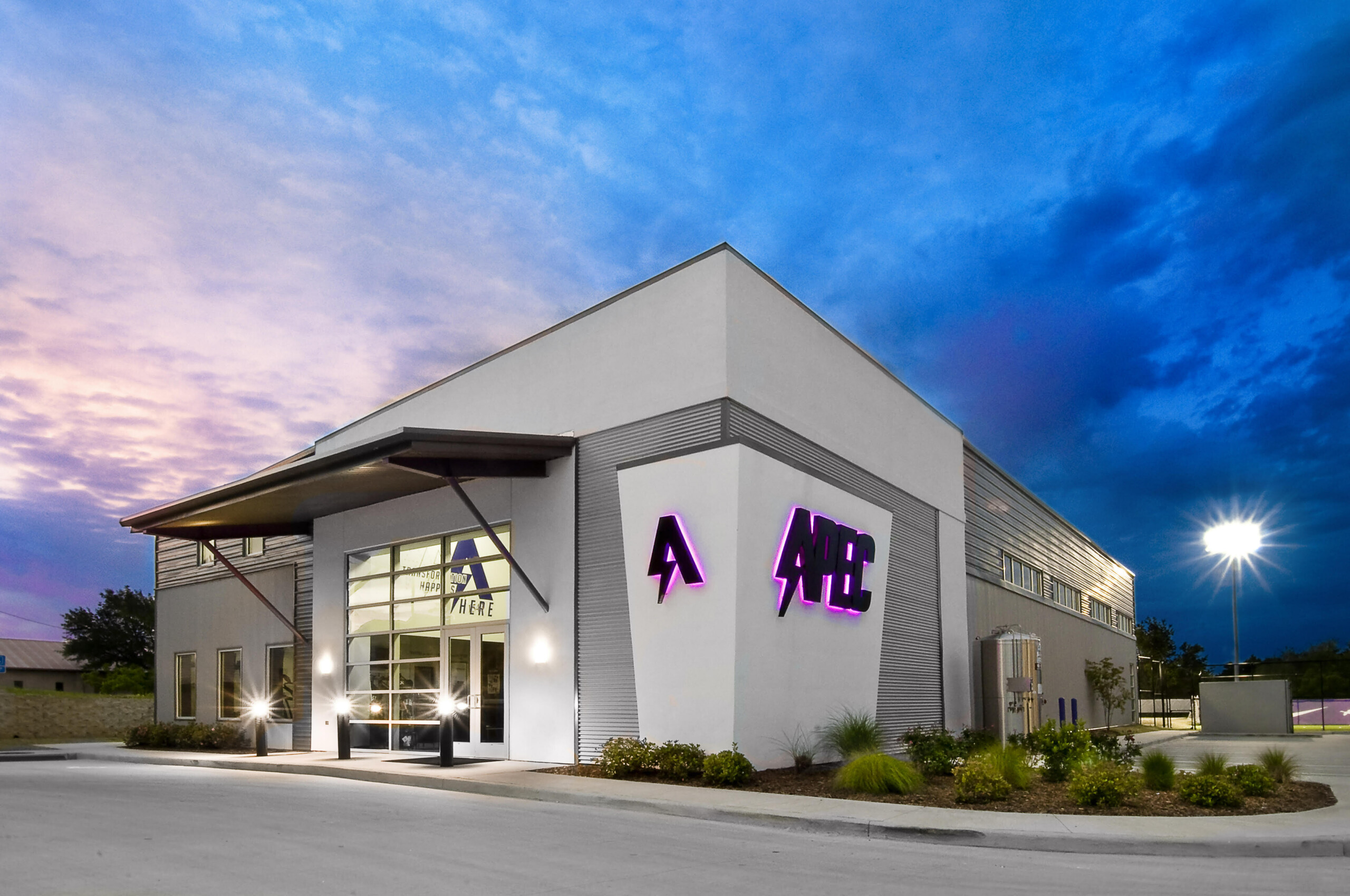
Step #1 – Understand NYC’s Gym Regulations and Licensing
The first step in opening a gym in NYC is to familiarize yourself with the city’s regulatory requirements. NYC requires gym owners to obtain several licenses and permits, depending on the services offered and the gym’s location.
- Business License: Every business operating in NYC must obtain a business license. The requirements vary depending on the borough and neighborhood.
- Department of Health Permit: Required if your gym offers amenities like pools, saunas, or food and beverage services. The NYC Department of Health and Mental Hygiene (DOHMH) oversees this permit.
- Certificate of Occupancy: Your gym’s location must have a valid Certificate of Occupancy that allows for the operation of a fitness facility. This ensures compliance with local building codes and zoning laws.
Consult with the NYC Business Portal to ensure your gym meets all necessary regulations and obtain the required licenses. Note that if you are outside of the city, then check out our guide on how to open a gym in New York state.
NYC Health Club Starter Guide
This section of information is taken from the official NYC Health Club Starter Guide provided by the city.
Business Planning
Utilize NYC Business Solutions for free support in complying with government requirements, saving money through incentives, and reaching your first customers. This service can help you analyze your market, choose a location, and navigate the complexities of starting a gym in NYC.
Business Registration
Depending on your business structure, you’ll need to register with New York State or the County Clerk. This includes Limited Liability Companies (LLCs), Corporations, Limited Partnerships (LPs), General Partnerships, and Sole Proprietorships. More information can be found on the NY State website.
Tax Identification
Apply for an Employer Identification Number (EIN) or Federal Tax ID from the IRS. If you’re a sole proprietor, your Social Security Number may suffice. Additionally, you’ll need a Certificate of Authority (Sales Tax ID) from the New York State Department of Taxation and Finance to sell products and services.
Insurance Requirements
Ensure you research and acquire necessary insurance, such as workers’ compensation, which is crucial for obtaining certain permits and licenses. You can find more information about business insurance on NYC’s business insurance page. Also, check out our guide to the best gym insurance and the best personal trainer insurance to compare options.
You can save up to 25% in discounts on business insurance for gyms, personal trainers, and online fitness professionals.
Planning Your Space
Location Selection
Choose a location considering customer demographics, competition, and logistical factors. Get insight from the NYC Small Business Services.
Permit Applications
You will need to petition for a Physical Culture Establishment Permit from the NYC Board of Standards and Appeals before operating your gym. If your gym includes special facilities like pools or saunas, additional permits from the NYC Department of Health and the Department of Buildings are required.
Architectural Planning
Engage a licensed architect or professional engineer to draw and submit plans to the NYC Department of Buildings. Consider using the NYC Development Hub for digital submissions to save time.
Lease Considerations
Before signing a lease, consult a lawyer to ensure the lease terms are favorable and compliant with local regulations. Utilize free legal advice services available through NYC Small Business Services.
Historic Districts and Buildings
Be mindful if your chosen location is in a historic district, as there are additional regulations that may slow or limit changes to the design or use of the space. For more information, visit the Landmarks Preservation Commission.
Obtaining Construction Permits
Building Permits
Only a registered architect or professional engineer may submit building plans. Ensure your space complies with all relevant building codes and obtain the necessary construction permits before beginning any work. Learn more at the NYC Department of Buildings.
Special Facilities
For gyms with pools or saunas, you will need a Certificate of Occupancy or a Letter of Acceptance from the NYC Department of Buildings, along with a Pool Operator’s Certificate and a Bathing Establishment Permit from the NYC Department of Health.
Noise Control
NYC has strict noise regulations. Your gym should not exceed certain noise levels both inside and outside the establishment. Ensure compliance to avoid penalties. More information can be found on the NYC Noise Control page.
Final Inspections
Arrange for final inspections and obtain a Certificate of Occupancy, Temporary Certificate of Occupancy, or Letter of Completion before opening your gym to the public. More details are available on the NYC Department of Buildings website.
Operating Your Gym
Licenses and Permits
Ensure all required operating permits and licenses are obtained. This includes specific certifications for lifeguards, athletic trainers, massage therapists, and dieticians.
Health and Safety Compliance
Display all required permits, licenses, and safety information on-site. If your gym includes a pool, ensure you have a Pool Safety Plan. Comply with NYC Department of Health regulations if you plan to offer food concessions like protein shakes, smoothies, energy drinks, etc.
Waste Management
Hire a licensed waste carter to manage gym waste according to NYC regulations. Learn more on the NYC Department of Sanitation page.
Signage and Bike Racks
If your gym has signs that are attached to the building or illuminated, they must be approved by the NYC Department of Buildings. You can request bike racks for the sidewalk outside your gym from the NYC Department of Transportation.
Staying Open and Compliant
License Renewals
Mark your calendar for license and permit renewals. Ensure that your employees maintain their required trade and professional licenses. Learn more about renewals on the NYC Business Express page.
Tax Preparation
Prepare for taxes according to NYC regulations and ensure compliance to avoid fines. NYC Business Express offers resources to help with tax preparation, available on their tax information page.
Noise and Hazardous Materials
Continue to monitor noise levels and ensure proper storage and disposal of hazardous materials, such as pool chemicals. Learn more about hazardous materials on the NYC Right to Know page.
Following these detailed steps will help ensure that your new gym in NYC is not only up and running smoothly but also fully compliant with all NYC gym regulations, allowing you to focus on growing your business.
Read More:
- NYC Business Portal
- NYC Department of Health
- NYC Planning – Zoning and Land Use
- NYC Health Club Starter Guide
- Gym Legal Guide
- How to Protect a Gym from Legal Issues

Step #2 – Estimate the Costs to Open a Gym in NYC
The cost of opening a gym in NYC can vary widely depending on factors such as location, gym size, and the type of facility you plan to establish. Typically, the startup costs range between $500,000 and $1.5 million.
- Initial Expenses: These include costs for leasing or purchasing property, gym equipment, and necessary renovations.
- Licensing and Permit Fees: Expenses related to obtaining business licenses, health permits, and a Certificate of Occupancy.
- Operational Expenses: Monthly costs such as rent, utilities, payroll, and insurance need to be carefully budgeted.
Understanding the monthly cost of running a gym in NYC, which can range from $30,000 to $100,000, is essential for financial planning and long-term success.
Estimated Costs for Opening and Operating a Gym in NYC
Opening a gym in New York City requires substantial financial planning, as the costs can vary widely depending on the location, size, and type of facility you plan to establish. Below is a detailed breakdown of the costs involved, starting with the initial investments necessary to set up your gym.
| Expense Category | Description | Estimated Cost (USD) |
|---|---|---|
| Initial Expenses | ||
| Property Lease/Purchase | Leasing or purchasing a suitable location for the gym. | $200,000 – $1 million (yearly) |
| Renovations | Costs for remodeling the space to fit gym requirements (flooring, mirrors, etc.) | $100,000 – $400,000 |
| Gym Equipment | Purchasing equipment such as treadmills, weights, machines, etc. | $100,000 – $300,000 |
| Interior Design and Furnishings | Costs for reception area, lockers, showers, etc. | $50,000 – $150,000 |
| Technology and Software | Membership management software, computers, security systems, etc. | $20,000 – $50,000 |
Initial Expenses: Setting up a gym in NYC involves significant initial expenses, including securing a property, renovating it to meet the specific needs of a gym, and investing in high-quality equipment. These costs are crucial in establishing a space that is both functional and appealing to potential members in a competitive market like New York City.
In addition to these initial investments, navigating the regulatory landscape in NYC is critical. You will need to secure the necessary licenses and permits to operate your gym legally and safely.
| Licensing and Permit Fees | Description | Estimated Cost (USD) |
|---|---|---|
| Business License | Required for legal operation of the gym. | $500 – $5,000 (one-time) |
| Health Permits | Necessary health and safety certifications. | $1,000 – $5,000 (one-time) |
| Certificate of Occupancy | Verifies that the building complies with local building codes. | $1,000 – $10,000 (one-time) |
Licensing and Permit Fees: Compliance with local regulations in NYC involves obtaining several essential licenses and permits. While these costs may be lower compared to the initial setup expenses, they are vital to ensuring your gym operates within legal parameters and meets all health and safety standards.
Once your gym is operational, managing ongoing expenses is key to maintaining financial stability. These operational costs include rent, utilities, payroll, and insurance, all of which must be carefully budgeted to ensure long-term success.
| Operational Expenses (Monthly) | Description | Estimated Cost (USD) |
|---|---|---|
| Rent | Monthly rent for the gym space. | $10,000 – $50,000 |
| Utilities | Electricity, water, heating, etc. | $2,000 – $10,000 |
| Payroll | Salaries for trainers, administrative staff, and cleaning personnel. | $15,000 – $50,000 |
| Insurance | Liability, property, and workers’ compensation insurance. | $2,000 – $8,000 |
| Marketing and Advertising | Online and offline marketing efforts to attract members. | $2,000 – $10,000 |
| Maintenance and Repairs | Regular maintenance of equipment and facilities. | $1,000 – $5,000 |
| Membership Software | Subscription to membership management platforms. | $500 – $2,000 |
Operational Expenses (Monthly): Running a gym in NYC involves managing high ongoing costs, particularly rent and payroll, which are typically the largest expenditures. Utilities, insurance, and marketing also contribute significantly to the monthly budget. Careful planning and monitoring of these expenses are crucial for maintaining profitability in a competitive market.
Understanding these costs and planning accordingly is essential for any prospective gym owner in NYC. With careful budgeting and strategic planning, you can establish a successful and sustainable gym business in one of the world’s most demanding cities.
Read More:
- Cost to Open a Gym
- Gym Design Guide
- Common Gym Lease Issues
- How to Negotiate a Gym Lease
- Gym Insurance Guide
Step #3 – Select the Best Gym Management Software
Choosing the right gym management software is crucial for efficiently running your fitness business in NYC. Exercise.com is an ideal choice for NYC gym owners, offering a comprehensive platform that streamlines operations and enhances member engagement.
- All-In-One Management Tools: Handle memberships, class scheduling, billing, and marketing from a single platform.
- Regulatory Compliance: Ensure your gym adheres to NYC’s health and safety standards with built-in compliance features.
- Member Engagement: Utilize Exercise.com’s mobile app to keep members informed and engaged with your gym.
Selecting the best gym management software is a critical step in ensuring your gym operates smoothly and meets all regulatory requirements in NYC. The best gym management software, and the best personal training software means that you can manage your entire gym in one place.
Offer booking and scheduling for your gym’s packages, sessions, memberships, and more.

Create and sell fitness memberships, products, and digital offers.
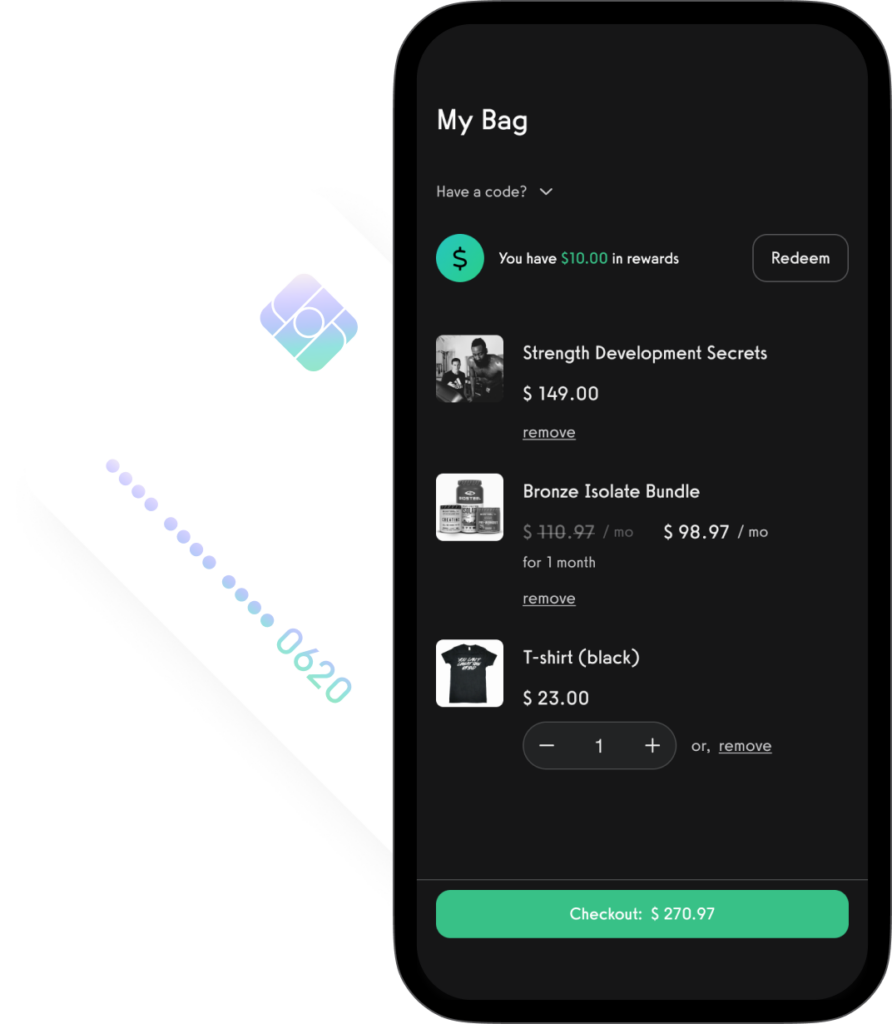
Manage, message, and market to your leads and members.
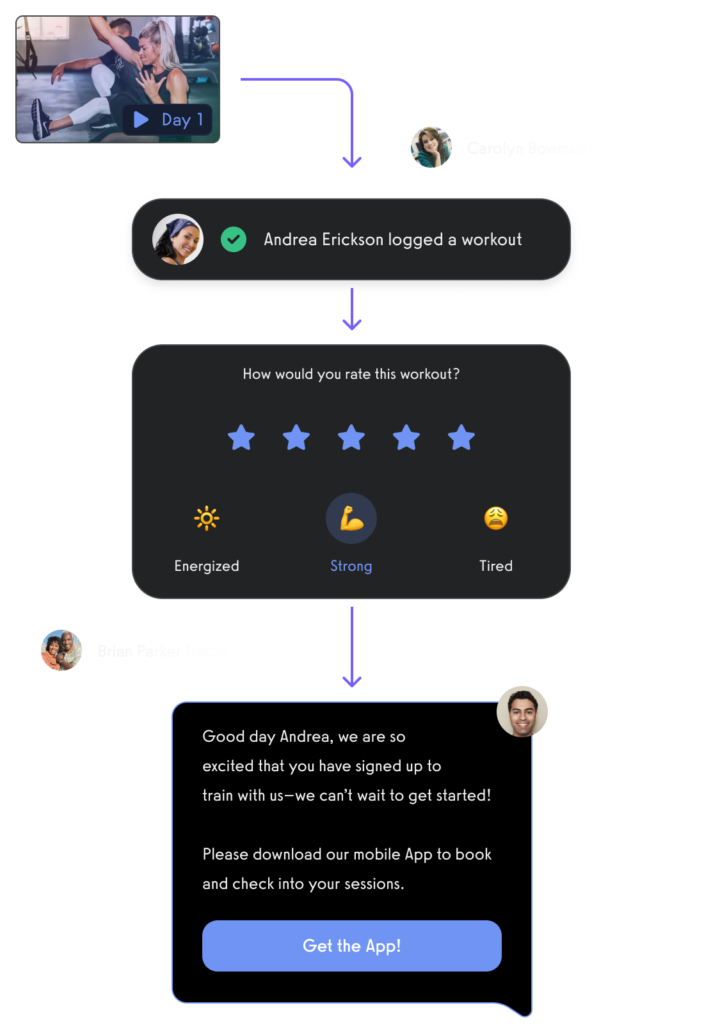
All from your very own custom branded fitness apps.

And much more…

Step #4 – Secure Funding for Your NYC Gym
Securing adequate funding is a key step in opening a gym in NYC. Depending on your financial situation, you may need to explore various financing options, such as bank loans, private investors, or government grants.
- Bank Loans: NYC-based banks may offer specific loan programs for small businesses in the fitness industry.
- Private Investors: Consider partnering with investors who have experience in the fitness sector and understand the NYC market.
- Government Grants and Incentives: Research NYC-specific grants and incentives available for small businesses in the fitness industry.
Proper funding ensures that you can cover all startup costs and maintain operations as your gym begins to grow.
Read More:
Step #5 – Find the Perfect Location
Choosing the right location for your gym in NYC is crucial to your business’s success. NYC offers diverse markets, from bustling Manhattan to the growing neighborhoods of Brooklyn, Queens, the Bronx, and Staten Island.
- High Traffic Areas: Locations near shopping centers, business districts, or residential neighborhoods can attract more clients.
- Parking Availability: Ensure there is ample parking for your members, as convenience is a key factor. In NYC, this may involve considering proximity to public transportation.
- Local Demographics: Analyze the demographics of the area to ensure they align with your target market.
Selecting the right location will significantly influence your gym’s success in NYC.
Read More:
Step #6 – Design Your Gym Layout and Purchase Equipment
A well-thought-out gym layout is essential for creating a functional and appealing environment for your members. Your gym should offer a variety of workout spaces that cater to different fitness needs.
- Equipment Placement: Organize equipment by type (e.g., cardio, strength training) to optimize space and ensure efficient use.
- Aesthetic Appeal: Choose a design that reflects your brand and resonates with your target market.
- Compliance: Ensure your layout meets NYC’s health and safety regulations, including accessibility requirements.
Investing in quality equipment and thoughtful design will help attract and retain members in your NYC gym.
Read More:
Step #7 – Develop a Marketing Strategy
Marketing is vital to the success of your gym in NYC. A comprehensive marketing strategy should include both digital and traditional approaches to maximize reach and visibility.
- Digital Marketing: Use social media, email marketing, and local SEO to connect with your target audience.
- Local Advertising: Consider print ads, flyers, and partnerships with local businesses to increase brand awareness.
- Referral Programs: Encourage current members to refer friends and family by offering incentives.
A strong marketing strategy will help you build a loyal customer base and establish your gym as a leading fitness destination in NYC.
Read More:
The Best Choice for Gym Owners in NYC
Opening a gym in NYC requires a solid understanding of local regulations, careful financial planning, and a strategic marketing approach. Exercise.com is the best choice for managing and growing your gym business in NYC, offering an all-in-one platform that enhances operations and boosts member satisfaction. For more information and to discover how Exercise.com can support your gym’s success, schedule a demo today.
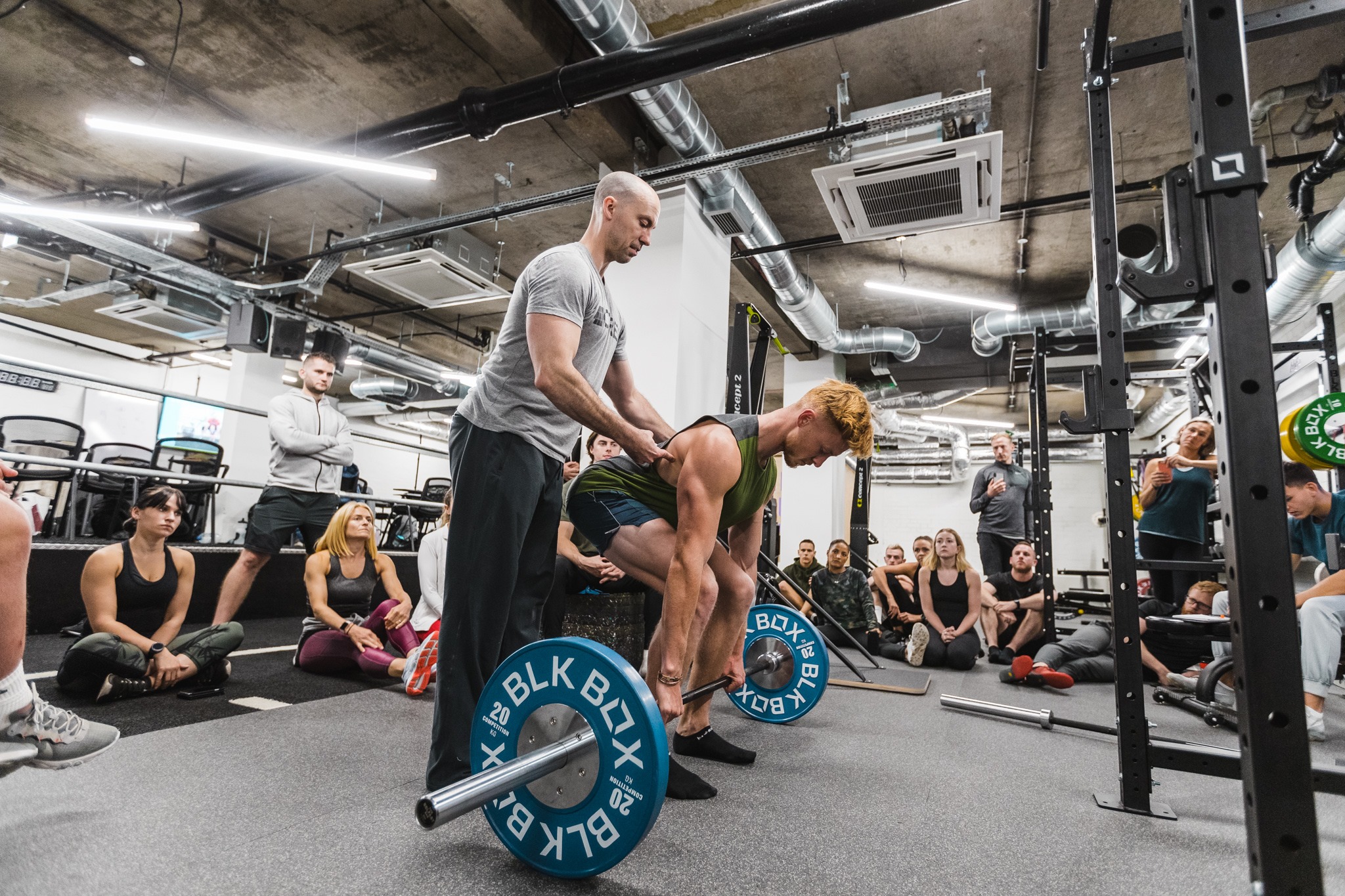
New York City Gym Business Location Report Card
Grade: A
New York City (NYC) offers an exceptional environment for opening a gym, with a highly dense and diverse population that is deeply engaged in fitness and wellness. The city’s fast-paced lifestyle, high-income levels, and strong health consciousness drive a significant demand for a variety of fitness services, from boutique studios to luxury fitness centers. However, the cost of doing business in NYC is among the highest in the world, with substantial expenses related to real estate, staffing, and regulatory compliance. Despite these challenges, NYC’s vibrant economy, health-conscious population, and the constant influx of both residents and tourists make it an attractive location for gym owners who can offer unique and high-quality fitness experiences.
| Factor | Grade | Comments |
|---|---|---|
| Population Size and Growth | A | Large, dense, and constantly growing population, driven by both residents and tourists, creating a robust market for fitness services. |
| Age Distribution | A | Diverse age demographics, with a significant concentration of young professionals, families, and affluent individuals, providing opportunities across various market segments. |
| Income Levels | A | High median income, particularly in Manhattan and affluent boroughs, supporting strong demand for premium and boutique fitness services. |
| Market Demand and Competition | A | Extremely high demand for fitness services, with intense competition from both established and emerging gyms and studios; opportunities exist in niche and innovative markets. |
| Cost of Doing Business | C+ | Very high business costs, including real estate, wages, and regulatory compliance; requires substantial investment, but potential returns are significant. |
| Economic Stability | A | Diverse and resilient economy with key industries like finance, technology, healthcare, and tourism providing consistent employment and consumer spending. |
| Supportive Business Environment | B+ | NYC offers a generally supportive environment for businesses, though navigating the city’s complex regulations and high taxes can be challenging. |
| Physical Activity Levels | A | Very high levels of physical activity, supported by a strong culture of health and fitness, with many residents regularly engaging in fitness activities. |
| Community Support for Fitness | A | Strong community engagement with numerous fitness events, wellness programs, and a focus on health; the city hosts a wide array of fitness-related activities year-round. |
| State and Local Regulations | B | Complex and stringent regulatory environment, particularly around health and safety compliance; requires careful planning and compliance with city-specific regulations. |
| Real Estate Considerations | C+ | Extremely high real estate costs, especially in Manhattan and prime areas; finding suitable commercial spaces can be challenging and expensive. |
| Labor Market | B+ | Good availability of fitness professionals, though wages are high due to the cost of living; strong competition for skilled staff in a densely populated market. |
| Consumer Behavior and Preferences | A | High demand for diverse and innovative fitness options, including boutique gyms, personal training, wellness services, and luxury fitness experiences. |
| Weather and Climate | B | Four distinct seasons with cold winters that drive demand for indoor gym facilities; summers support outdoor fitness activities, but weather variability requires year-round options. |
| Safety and Crime Rates | B | Crime rates vary significantly by neighborhood, with some areas being very safe and others less so; generally, the city has strong security measures in place. |
| Cost of Living | C+ | Very high cost of living, particularly in Manhattan, but balanced by high income levels and strong consumer spending on fitness and wellness. |
| Economic Development | A | Continuous economic development, particularly in finance, technology, and real estate, providing numerous opportunities for growth in the fitness industry. |
New York City Gym Statistics
New York City is home to over 1,500 gyms, with approximately 2.5 million residents holding gym memberships, representing 30% of the city’s population. The average gym size in NYC ranges from 10,000 to 20,000 square feet, with a significant number of boutique fitness studios that are smaller in size. Popular gym chains such as Equinox, New York Sports Clubs, and Planet Fitness dominate the market, alongside a thriving boutique fitness scene. Monthly membership costs typically range between $50 and $150, depending on the gym’s location and amenities, while personal training sessions cost between $80 and $150 per hour. The gym industry in NYC is growing at a rate of 4.5% annually.
| Statistic | Value |
|---|---|
| Total Number of Gyms | 1,500+ |
| Average Monthly Membership Cost | $50 – $150 |
| Number of Gym Members (Approx.) | 2.5 million |
| Percentage of Population with Membership | 30% |
| Average Gym Size (Square Feet) | 10,000 – 20,000 |
| Most Popular Gym Chains | Equinox, New York Sports Clubs, Planet Fitness |
| Average Personal Training Cost (Per Hour) | $80 – $150 |
| Growth Rate of Gym Industry (2023-2024) | 4.5% |
| Top Neighborhoods for Gyms | Manhattan, Brooklyn, Queens |
| Percentage of Gyms Offering Group Classes | 90% |
| Percentage of Gyms with 24/7 Access | 50% |
| Average Annual Revenue per Gym | $1 million – $2.5 million |
New York City Gyms per Capita by Borough
| Borough | Population | Gyms | Gyms per Capita | Income | Fitness Rank |
|---|---|---|---|---|---|
| Manhattan | 1,694,251 | 1,500 | 1,130 | $82,000 | High |
| Brooklyn | 2,736,074 | 2,200 | 1,243 | $56,000 | Medium |
| Queens | 2,405,464 | 1,800 | 1,336 | $64,000 | Medium |
| Bronx | 1,418,207 | 1,000 | 1,418 | $42,000 | Medium |
| Staten Island | 495,747 | 400 | 1,239 | $79,000 | Medium |
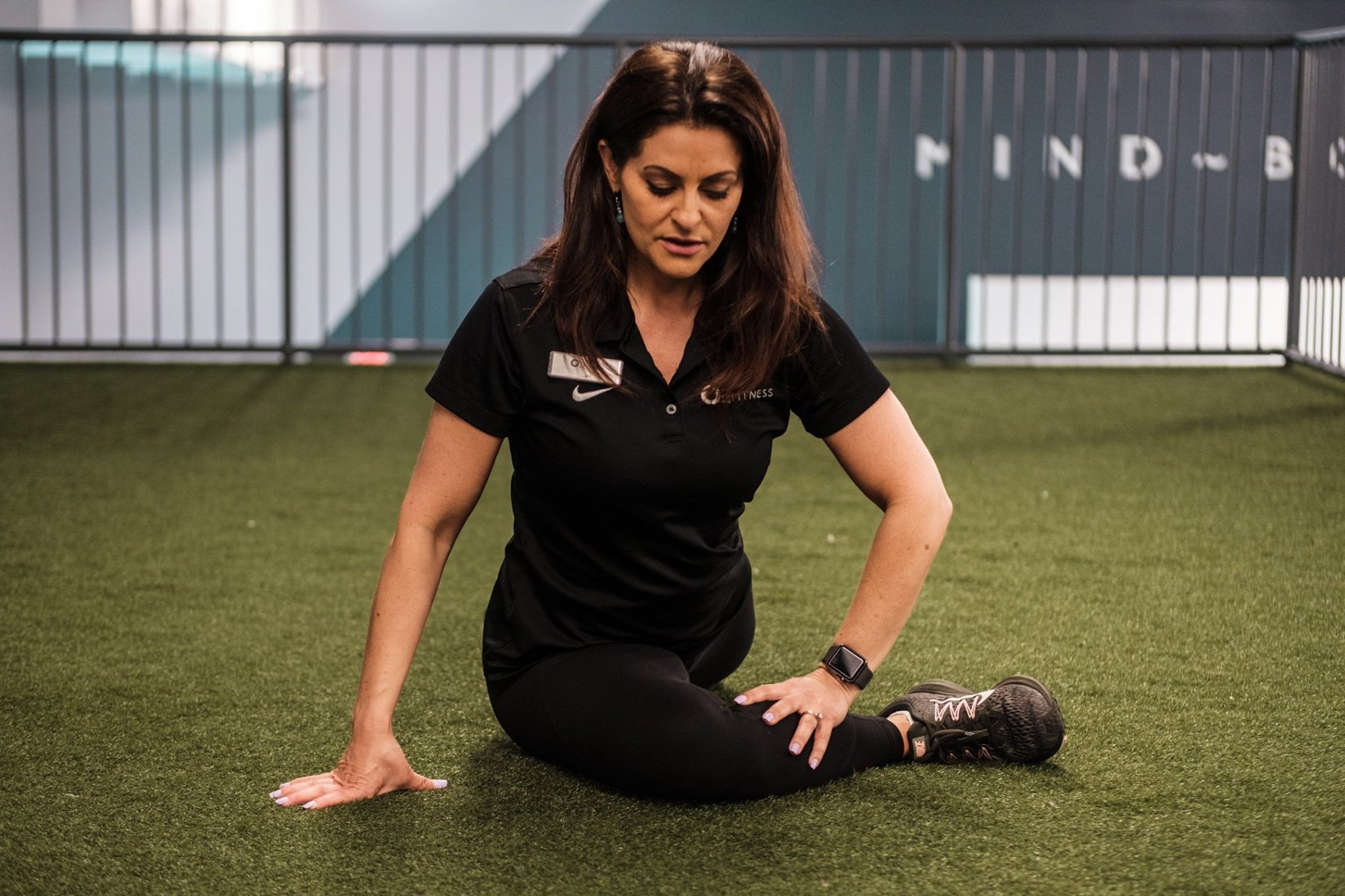
How much does it cost to open a gym in NYC?
The cost to open a gym in NYC typically ranges from $100,000 to $500,000, depending on factors such as the size of the facility, location, and the type of equipment and services offered. Costs can be significantly higher in Manhattan due to real estate prices and local demand for fitness services.
Read More: Cost to Open a Gym
Who regulates gyms in NYC?
Gyms in NYC are regulated by the New York City Department of Health and Mental Hygiene (DOHMH) and the New York City Department of Consumer and Worker Protection (DCWP). These agencies ensure that fitness centers comply with city health and safety regulations as well as consumer protection laws, particularly those related to membership agreements.
What licenses do you need to open a gym in NYC?
To open a gym in NYC, you will need to obtain several licenses, including a General Business License from the NYC Department of Consumer and Worker Protection (DCWP) and a Health Club License if your gym requires membership contracts. You may also need a Certificate of Occupancy from the NYC Department of Buildings (DOB) and a Fire Department permit if your facility is large enough.
What are the gym license requirements for ongoing licensing in NYC?
For ongoing licensing in NYC, gym owners must renew their business licenses annually, such as the Health Club License, and ensure compliance with all health and safety regulations. Regular inspections by the NYC Department of Health and Mental Hygiene may be required to ensure that the facility adheres to city standards.
How do I get what I need to open a gym in NYC online?
You can start the process of opening a gym in NYC by registering your business with the NYC Department of Consumer and Worker Protection (DCWP) online portal and applying for necessary licenses via NYC Business Express. Additionally, you may need to register for sales tax with the New York State Department of Taxation and Finance.
How to start a fitness business in NYC?
Starting a fitness business in NYC involves several key steps: conducting thorough market research, developing a comprehensive business plan, securing a prime location, and obtaining the necessary licenses and permits. Compliance with NYC’s specific health and safety regulations is crucial, as is crafting a strong marketing strategy to attract clients.
Read More: How to Start a Fitness Business
What are the legal requirements to open a gym in NYC?
To legally open a gym in NYC, you need to acquire a General Business License and a Health Club License from the NYC Department of Consumer and Worker Protection, secure a Certificate of Occupancy from the Department of Buildings, and comply with health and safety regulations as prescribed by the NYC Department of Health and Mental Hygiene. Liability insurance is also recommended to protect your business from potential legal issues.
What are the most important NYC gym laws?
The most important gym laws in NYC include compliance with the NYC Health Code, consumer protection regulations, and fire safety laws. Gyms must also ensure that all trainers have the appropriate certifications and that the facility meets all accessibility requirements under the Americans with Disabilities Act (ADA).
How do I start a small gym business?
Starting a small gym business in NYC requires careful planning and preparation. Begin by developing a comprehensive business plan, securing a strategic location, purchasing essential equipment, and ensuring compliance with all relevant NYC licensing and regulatory requirements. Effective marketing and customer service are crucial to building and retaining a loyal client base.
Read More: How to Start a Small Gym
How profitable is owning a gym in NYC?
Owning a gym in NYC can be profitable, with typical profit margins ranging from 10% to 30%. Profitability depends on factors like location, the variety of services offered, and how well the gym is managed. Additional revenue from services such as personal training, nutrition counseling, and group fitness classes can further enhance profitability.
Is it worth it to open a gym in NYC?
Opening a gym in NYC can be a worthwhile investment if you have a solid business plan and a passion for fitness. While the initial investment is substantial, a well-managed gym in a prime location can provide steady income and opportunities for growth.
Should a gym be an LLC or a corporation in NYC?
In NYC, many gym owners choose to operate as a Limited Liability Company (LLC) rather than a sole proprietorship or corporation. An LLC provides limited liability protection, potential tax advantages, and can enhance your business’s credibility. Consulting with an accountant or financial advisor is recommended to determine the best structure for your business.
Read More: Best Business Structure for Gyms
What permits are needed to open a gym in NYC?
To open a gym in NYC, you will need a General Business License, a Health Club License, a Certificate of Occupancy, and potentially a Fire Department permit if your facility exceeds certain size limits. If you offer food or beverage services, a Food Service Establishment Permit from the NYC Department of Health and Mental Hygiene is also required.
Does OSHA apply to gyms in NYC?
Yes, OSHA (Occupational Safety and Health Administration) regulations apply to gyms in NYC to ensure a safe working environment for employees. This includes maintaining equipment, ensuring cleanliness, and providing necessary safety training for staff.
How to open a gym with no money in NYC?
Opening a gym with limited funds in NYC is challenging but possible by securing investors, applying for small business loans, or forming partnerships. You might also consider starting with a smaller facility or sharing space to minimize initial costs while building your client base.
Read More: How to Start a Gym With No Money
How hard is it to start a fitness business in NYC?
Starting a fitness business in NYC requires significant effort, from initial planning and securing financing to navigating NYC regulations and developing an effective marketing strategy. However, with dedication and a clear plan, you can establish a successful fitness business.
How do I start a fitness business from scratch in NYC?
To start a fitness business from scratch in NYC, begin with comprehensive market research to understand your target audience. Develop a detailed business plan, secure funding, choose a strategic location, and ensure compliance with NYC health and safety regulations. Effective marketing will be crucial to attract and retain clients.
Is it difficult to start a gym in NYC?
Starting a gym in NYC can be challenging due to the significant initial investment, regulatory requirements, and competition. However, with a well-crafted business plan, strong marketing, and a commitment to quality service, it’s possible to successfully launch and manage a gym.
How many members does a gym need to be profitable in NYC?
The number of members required for a gym to be profitable in NYC depends on factors such as overhead costs, membership fees, and additional revenue streams. Typically, a gym may need between 300 to 500 active members to cover expenses and begin generating a profit.
Read More: How many members does a gym need to be profitable?
What is the initial investment for a gym in NYC?
The initial investment for opening a gym in NYC includes costs related to leasing or purchasing a facility, equipment, renovations, staffing, and marketing. This can range from $100,000 to $500,000 depending on the scale and location of your gym.
Is it hard to start a gym business in NYC?
Starting a gym business in NYC is challenging due to high startup costs, regulatory compliance, and the need to differentiate yourself in a competitive market. However, with a well-thought-out business plan, understanding of local market dynamics, and effective marketing strategies, success is attainable.
How to open a cheap gym in NYC?
To open a cost-effective gym in NYC, consider leasing equipment, choosing a smaller or more affordable location, and focusing initially on essential services. As your membership base grows, you can expand your offerings and services.
Is it worth it to franchise a gym in NYC?
Franchising a gym in NYC can be a valuable option if you want to leverage an established brand and business model. However, it’s important to weigh the franchise fees and operational guidelines associated with this choice.
Read More: How to Buy a Gym Franchise
How much money can you make owning a gym franchise in NYC?
The income from owning a gym franchise in NYC can vary based on factors like location, brand reputation, and management efficiency. A well-managed franchise in a desirable location can be highly profitable.
Read More: How much money can you make owning a gym franchise?
What are the pros and cons of owning a gym in NYC?
Owning a gym in NYC offers several benefits, including the potential for steady income and the chance to promote health and wellness in your community. However, challenges include high startup costs, the need for consistent marketing, and maintaining member retention.
Read More: Pros and Cons of Owning a Gym
What are the common reasons gyms fail in NYC?
Common reasons gyms fail in NYC include poor location choice, insufficient capital, ineffective marketing, and failure to retain members. Success in the gym industry requires careful planning, understanding market needs, and delivering exceptional customer service.
Read More: Reasons Gyms Fail
Should I open a gym in Manhattan?
Manhattan, with its dense population and high demand for fitness services, offers a prime location for a gym. However, real estate costs are extremely high, so a solid business plan and unique value proposition are essential for success.
Should I open a gym in Brooklyn?
Brooklyn’s diverse and growing community presents a solid opportunity for opening a gym. Understanding the local market and offering specialized services can help your gym thrive in this area.
Should I open a gym in Queens?
Queens’ suburban environment and active lifestyle culture provide a favorable market for gyms. A well-targeted business plan and community engagement can help your gym stand out in this competitive area.
Should I open a gym in the Bronx?
The Bronx’s growing population and interest in fitness make it an attractive location for a gym. However, competition is increasing, so a differentiated business model and effective marketing are crucial.
Should I open a gym in Staten Island?
Staten Island’s expanding population and its strategic location offer a viable opportunity for opening a gym. Offering unique fitness services or targeting specific demographics can help your gym succeed in this market.
What is the best gym management software for NYC gyms?
The best gym management software for NYC gyms should provide comprehensive tools for managing memberships, scheduling, billing, and marketing. Exercise.com is an excellent choice, offering features tailored to meet the needs of gyms across NYC, ensuring smooth operations and compliance with local regulations.
